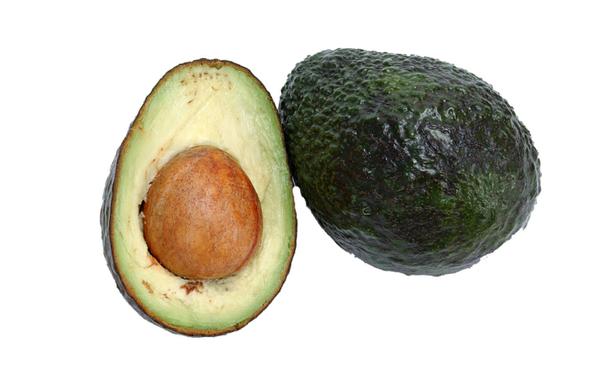Six Amazing Ways Animals Can Improve Your Health
Post contributed by Paul Roberts.
 Having a pet can be one of the best things you ever do in your life. They provide us with constant entertainment, become part of our family and they are an integral part of our lives. But they can actually be beneficial to our health too.
Having a pet can be one of the best things you ever do in your life. They provide us with constant entertainment, become part of our family and they are an integral part of our lives. But they can actually be beneficial to our health too.
1. A Healthier Heart
Believe it or not, having a pet dog or a cat can actually reduce your risk of developing heart disease. The reason for this is that they can reduce our stress and will also encourage us to get out and exercise much more often. Exercise causes out blood to pump around our body and rescues its pressure, and it also strengthens our heart overall. People who own animals live a much longer lifespan than those who do not.
2. Stress Busters
Life can be stressful and tough at times, and everything in our lives can bugle up and become overwhelming if we let it happen. Stress related illnesses are some of the most common amongst the working population and pets can reduce this stress by making us happier people. You can be much happier by having a pet to come home to at the end of a hard day and one to cuddle when you are down. For those who have emotional and mental conditions you can even look at CertaPet’s ESA guide to get an emotional support animal who will help you deal with your stress. Petting your dog or cat releases positive hormones in the brain which keep us happy.
3. Sociability
As soon as you own a pet, you become much more attractive as a friend to everyone who sees you. By having a dog for example, you are much more likely to make friends while out and about in the Park because people will either want to come over and pet your dog, or they will have dogs themselves and will talk to you about them. You will make a lot of new friends and acquaintances!
Is Peanut Butter Good For Cholesterol?

According to the Texas Peanut Producers, Americans eat 3 pounds of peanut butter per person each year. The average American child consumes about 1,500 peanut butter sandwiches by the time they graduate from high school.
Since we obviously love our peanut butter, just how nutritious is it for us?
Peanut Butter Health Benefits
Here are 5 health benefits of peanut butter:
1. Suppressed hunger
While peanuts are energy dense (i.e. not low in calories) consuming peanuts as a regular part of your diet does not lead to weight gain due to a high satiety value (i.e. reduced feelings of hunger).
2. Reduced risk for heart disease
Including peanuts in your diet leads to reduced cardiovascular disease risk due to peanuts promoting lower triglyceride levels and increased serum magnesium levels.
3. Heart healthy fats
About 50% of the fat contained in peanuts is a heart-healthy monounsaturated fat. This is the same type of fat found in olive oil. Studies have found monounsaturated fats improve cholesterol levels and reduce heart disease risk.
4. Lower colon cancer risk
Studies have connected frequent peanut intake to reduce colorectal cancer risk.
5. Reduces risk of diabetes
Research has found replacing carbohydrates with two ounces of nuts, such as peanuts, every day improves blood glucose control and blood lipids in individuals with type 2 diabetes.
Selecting a Healthy Peanut Butter
Read the food label. Select peanut butter containing no hydrogenated fats and minimal added sugar. Check the ingredient list and choose a peanut butter with only peanuts and salt listed. This means no additives and a rich peanut flavor.
Be sure to refrigerate natural peanut butter. The oils may become rancid if stored at room temperature. Try refrigerating the peanut butter upside down so the oils and solids remix and less stirring is required.
Consuming peanuts as a regular part of your diet is just one step you can take to promote lower cholesterol levels. Want more ideas? Access my free e-course here!
P.S. Did you know it takes 850 peanuts to make one 18oz. jar of peanut butter?
All the best,
Lisa Nelson RD
Health Pro for HealthCentral
How to Follow a Vegan Diet for Heart Health

Why go vegan?
The most common reasons given for pursuit of a vegan lifestyle include:
- Improve overall health
- Environmental concerns
- Natural approach to wellness
- Food-safety concerns
- Animal rights
- Weight loss/maintenance
A vegan diet is linked to many health benefits since the diet is naturally low in saturated fat and high in fiber. Studies have found vegan diets to reduce cancer and heart disease risk. Additional health benefits connected to a vegan diet include lower blood pressure, improved diabetes management, and decreased risk of kidney stone and gallstone formation.
However, a vegan diet does not automatically equal healthier. Whether you are vegan or not it always comes down to the foods you select. There are high sugar and high-fat vegan foods that are contrary to a healthy diet.
Health Aspects To Consider For A Happier Future
Post contributed by Dom Brickley.
As you get older, you experience slightly more problems with your health than you did when you were younger. It’s a part of life. However, that doesn’t mean there’s nothing you can do to help ensure a healthier and happier future as you get older. Whilst we may not be able to control mother nature and stop the process of aging (yet), there’s a lot you can do to ensure that you live a more enjoyable life even as you enter old age. Here are some health aspects that you really need to start considering if you want to ensure that you have a happier future.

Your body.
One of the most important health aspects to monitor as you get older is your body. When you’re young, it seems that your body remains in relatively good shape no matter how you treat it; you might have been able to eat as much you wanted and exercise as little as you wanted, but that changes as you get older. Obviously, you should look after your body no matter how old you are, but it becomes more important to do so as you get older. You need to think about your diet, first of all. Starting a food diary might help you to keep track of what you’re eating whilst you try to fix your existing diet. You need to make sure that you’re getting all the carbohydrates, protein, and other sustenance that you need whilst avoiding too much junk. This isn’t just about your weight but the health of your heart and your mind.
Of course, sorting out your diet is only the first part of improving the health of your body. You need to think about exercise too, as hard as that might be once you get older. Okay, you might not be able to run as fast as you could when you were a teenager, but that doesn’t mean it’s any less important to get your body moving. It’s not about intense workouts or getting a toned and muscular body; it’s about keeping yourself physically active. Again, weight is only part of the equation. Regular physical exercise will help to keep your heart healthy and avoid high blood pressure whilst also improving your mental health.
Your senses.
Your senses are going to fade as you get older. It’s irritating, but it’s something that everybody experiences. In fact, many people need eyewear to correct poor vision even in their younger years, so you’re lucky if these problems have only started to affect you in later life. One of the biggest things you need to monitor is your hearing. It’s so easy to counteract bad hearing by turning up the volume on the TV, but this can actually damage your eardrums further. You should do some research on hearing aids because you don’t want to cause further problems. You can learn more here about hearing aid fittings. Remember to see a professional if any of your senses start to fail so that you can prevent any further damage.

Your mind.
The final aspect of your health to consider as you get older is the most important: your mind. As we age, our brains aren’t quite as effective as they used to be. It’s harder to remember things, and you might be a little slower on the ball than you were in your youth. However, there’s a lot you can do to keep your brain working to the fullest of its potential. It’s all about keeping your mind active, much in the same way as your body. Socializing with friends and family will help to keep your brain working, as will playing with pets; keep yourself happy, and this will keep you healthy.
Importance of Nutrition in Cardiac Rehab Patient Education
 Hospital readmission rates are a reflection on quality of care.
Hospital readmission rates are a reflection on quality of care.
Poor care coordination and discharge planning combined with medication errors and adverse events such as infections contribute to readmission rates.
For those being treated for heart disease, poor diet and medication compliance are the most common reasons for readmission.
Cardiac Rehab Patient Education: Nutrition Guidance
Research is analyzing the effectiveness of cardiac rehabilitation programs, particularly programs that provide a nutrition education component versus those that do not.
One retrospective study reviewed data from 73 cardiac rehabilitation patients who attended nutrition classes. All 30-minute classes were taught by the same registered dietitian incorporating dietary guidelines recommended by the American Heart Association Adult Treatment Panel III and Therapeutic Lifestyle Change diet.
Participants were categorized based on number of classes attended. One session offered twelve nutrition classes and a second session offered a condensed version with six nutrition classes.
Dietary fat intake was used to assess diet quality pre- and post-rehab. Those attending the greatest number of nutrition classes saw the greatest improvement in dietary fat intake.
Blood pressure benefits of avocado seeds

Avocados provide monounsaturated fats, the omega-3 fatty acid alpha-linoleic acid, vitamin B6, pantothenic acid, folic acid, magnesium, potassium, beta-sitosterols, and vitamin E… all of which add up to equal a heart healthy addition to your diet rich in antioxidants to reduce inflammation.
However, all the above refers to the flesh of the avocado. What about the large seed, which most of us tend to scoop out and throw away?
An avocado seed can be consumed by removing the fine layer of brown skin and then grating it or using a coffee bean grinder to grind it into a powder.
This powder can then be added to soups, salads, stews, pasta/rice dishes, smoothies and baked goods.
A viral Facebook video showed how to peel, chop, and pulverize the seed adding fuel to the idea of the avocado seed being a type of “super food”.
There is some argument regarding the positive health benefits of avocado seeds.
Avocado seeds contain protein, fiber, calcium, magnesium, potassium, flavonoids, and phenols.



